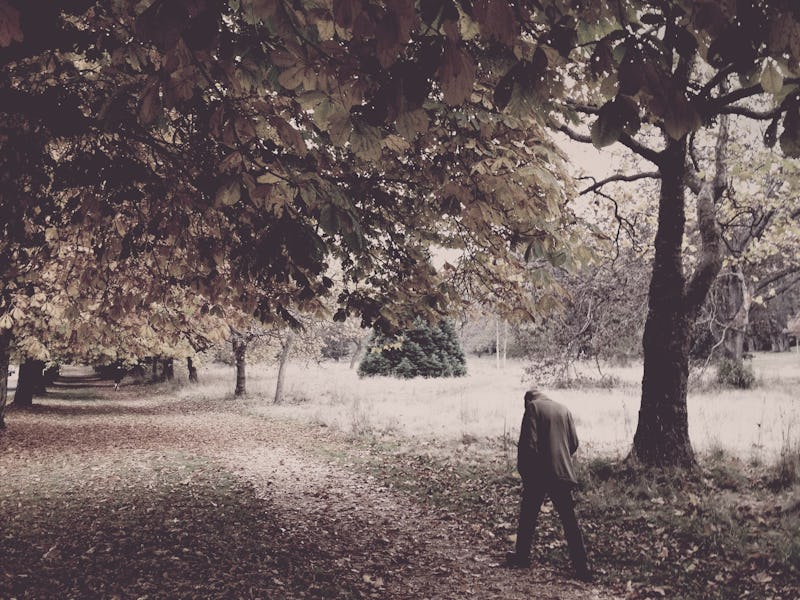The Fuzzy Psychology of Why We're Bummed During the Holidays
Scientists haven't proven that the holiday blues are real. That doesn't mean they aren't.

The month between Thanksgiving and Christmas is supposed to be a joyous one, during which warm, fuzzy feelings flood into icy hearts, melting them and tensions between their immediate family while Love Actually plays on repeat. But the reality is that many people loathe the holidays and their sparkly cheer, finding them to be total downer. It’s social psychology paradox: You can’t make everyone happy by trying to make everyone happy. But that’s just fact. The why of the thing is considerably more complicated.
Some researchers have dubbed that weird in-the-dumps feeling the “Holiday Blues.” Back in 2009, the American Psychological Association put out a note on the potential permanence of this condition, noting that it could be a product of economics: In 2009, the economy had tanked, the recession was in full-force, and buying the requisite gifts for your friends and family was just a big ol’ slap in the face. That, in itself, was enough to make a lot of people feel sour. There’s been a rebound since then, but the feeling has not gone away. And giving it a memorable nickname might be doing sufferers of seasonal affective disorder and depression a disservice.
There’s potentially some conflation going on here: As any adult child who’s gone home to their parents will admit, it can be rough suddenly living under your parents’ roof and having to abide by rules you haven’t had to since you were but a teenager. Combine that with nagging and separation from your personal space and stress levels push people over a cliff toward despair.
Psychologists have historically blamed December downerism on people feeling disappointed after returning to their lives post-vacation. But a 2010 study published in The Journal of Happiness Studies found no substantiation of the post-holiday slump. “The effect of holiday trips on vacationers’ happiness is mostly short-lived; among vacationers, happiness was unrelated to the number of trips and days spent on vacation,” the authors wrote.
That doesn’t mean we should completely brush aside the fact that some people feel the holiday blues, despite its conflationary nature. Part of this has to do with failed expectations — you might spend the weeks leading up to Thanksgiving and Christmas daydreaming of how lovely it will be to gather ‘round the family, swap old family tales, and reminisce of days bygone, except reality ends up being one big shitshow. It’s not unlike what second place Olympians might feel, even if your holiday ends up being pretty damn close to perfect.
An unexplored reason could be the brain-gut connection. Increasingly, research is pointing to psychological stress affecting the gut. This holiday season, there’s reason to believe that the election threw many people a serious anxiety curveball, affecting not only their precious gut microbiome but the very chemistry of their brains. Research is still in the early stages with very small samples, but preliminary results indicate psychobiotics hold promise in helping to regulate mental states through the power of bacteria aimed at your gut.
That’s not to say that you can just slurp some probiotic yogurt and call it a day; psychobiotics would require long-term treatment and a more targeted approach to see positive effects. But they’re a natural option that wouldn’t come with the much maligned negative consequences of antidepressants, and could be a way to counter not only the holiday blues but also daily stress.
In short: The holiday blues are a mystery. They might be just an emotional rollercoaster, or there may be some real bacterial basis for what makes some people’s moods dip — we simply don’t know. It’s safe to say stress has a huge role, and psychobiotics might offer an avenue into figuring out what that role is. But until we understand how stress affects our mental states — and how high-octane, stressful events like the holidays might play into our mental states — we’re not quite sure what makes some of us blue come the holidays.